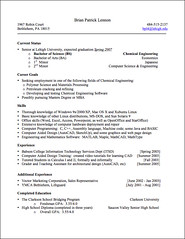The issue of piracy, particularly that of movies and music, has become a very important issue as of late. Record Industries are suing peer to peer users for stealing music. Music fans are crying foul and claiming fair use and the record industry is poisoning the market and cheating artists. Curiously, artists are taking stands across the whole spectrum. Bruce Springsteen and The Rolling Stones are offended that fans are stealing their hard work for their own use. On the other hand, artists such as John Perry Barlow, of the Grateful Dead, literally pay people to pirate their music.
Before going any further, I would like to reinforce the idea that I am not promoting piracy. As a consumer, you really are cheating hard-working and (sometimes) honest companies and artists. This article is not being written to encourage consumers to pirate works. Rather, it is intended to be directed at copyright holders, given an already giant pool of pirated material, and hopefully will provide some insight as to how to deal with it appropriately.
With that said, is this demon "piracy" actually bad? Or maybe I should say, is all piracy bad all of the time? The short answer to that is NO. Not by a long shot. Unfortunately, the term "bad" is subject to imprecise and ambiguous words like "fair". On the other hand, the law has a much clearer definition rooted in copyrights. From a legal standpoint, the phrase "without permission" prevails over any question of morality. Ideally, the law provides protection to suppliers of creative works, in order to generate incentives to produce such work. However, pirated copies of copyrighted works have always been around, and decreasing bandwidth and increasing popularity of peer to peer (P2P) file sharing, piracy is at an all time high. Furthermore, programs such as Freenet provide safe harbors and difficulty controlling and detecting piracy.
Without surprise, many copyright holders are crying foul, claiming all sorts of billions of dollars of industry losses. Are they losing anything? Is this piracy even bad for the industry? Generally speaking, I would say yes. But that's based on some rough assumptions. At a risk of oversimplifying, I am going to assume there are three types of users:
(a) people downloading material as a substitute for buying it
(b) people downloading backup copies of media they legitimately purchased
(c) people downloading media they would not care to buy, that is, downloading as a substitute for not having it
Next, I would like to define the aforementioned "loss". From here on out, when I say "loss", I mean:
- A monetary loss, or missed potential sale, where the user pirates the work as a specific substitute for purchasing it.
- A non-monetary loss, where the authors feel cheated, where others are using their work and possibly profiting off of it without giving the authors due credit.
Finally, I come to the central point of my editorial. There are three types of consumers that commit piracy, but cause no rational losses to the industry of any kind. I would like to introduce to you three hypothetical people: the "Photoshop kid", the "die-hard fan", and the "Fair Use copier".
The first person is the "Photoshop Kid". Assume that (a) the 'kid' has no real income source; there is no way he can afford a copy of Photoshop. This would correspond to user type C mentioned earlier. Whether the Photoshop Kid gets to use the program or not, the chance of Adobe making a sale here are zero. Sure, he is using copyrighted works without permission, and the hard-working programmers at Adobe have every right to feel cheated. But my advice: worry not. Photoshop Kid is not hurting anybody's balance sheet, and who knows, if he really likes the program, gets used to the layout, he might end up liking it so much that he will buy it when he can afford it. Let the baby have his bottle. Just overlook this one, and in a few years, you might actually have yourself a customer.
The second person is the "die-hard fan" with an infamous compilation, the "Best of" album. Consider a die-hard fan of a band, who absolutely MUST HAVE every album that comes out from this band. In fact, this fan has every single album this band has ever come out with, except for a new 'best of' album that is about to come out. In this case, our die-hard fan decides to download this album for free rather than buy it. This is a clear-cut type A example of piracy from earlier. The artist here suffers both a monetary and a non-monetary loss. This download means one less sale, and is certainly not a welcomed transaction. But consider this: what exactly is this "loss"? Conceivably, this fan has already compensated the author of this work through the purchase of earlier albums. Is there really any new artwork here? Please. The term "compilation" is a bit too generous. This is nothing more than a cheap repackage. It's little more than a playlist of popular songs with a new picture on the front. Maybe some sound editing if you're lucky. Copyright violations or not, musicians and record companies have some nerve charging full sticker price for this excuse for "artwork". The artist has already been compensated for this album both monetarily and philosophically through the purchase of the old albums. To claim a loss because this album is "stolen" would be pretty tough to rationalize in my opinion.
The third person is the "Fair Use copier". This case is aimed more particularly at the DVD market, where unlike VHS, every movie sold is locked down with an anti-copying scrambling mechanism. And region encoding. And it can't (legally) be copied to a mobile device (ie, iPod video or PSP). Let's say our friend Fair Use copier has purchased a DVD and wishes to copy it to an iPod video to watch in the car (as a passenger, hopefully) or somewhere other than a home theater. The DVD alone does not allow this, so our user downloads a copy, as a Type B downloader. Clearly, the artists and movie companies have gotten both their paycheck and their recognition from the sale, so no loss here. Would you really call this guy a "thief" or "pirate"?
Before I conclude, I would like to add a few final thoughts. I am not trying to advocate or defend piracy. This is targeted at artists, authors, movie and music producers, and software companies. Copyright holders have every right to sue these hypothetical users, but in many cases, it would be a dumb idea. Copyright holders: I very much respect your legal rights in these situations. But that is not the point here. Before you demand huge settlements, audit and sue your customers, make sure you do your homework first. Be sure you are targeting the right people, because some of them are not even hurting you in the first place. Remember, not all publicity is good publicity.
Monday, January 15, 2007
Resume Update
I am posting my resume here. I am interested in work primarily in the field of chemical engineering. However, I also have an extensive background in Economics, and essential skills in computer hardware and repair, programming, and 3D modeling & design. If you are interested please email me in the address provided.


Wednesday, January 10, 2007
Introduction
Here I'll be putting thought-out, well-written articles and editorials. Or at least links to them.
Subscribe to:
Posts (Atom)
